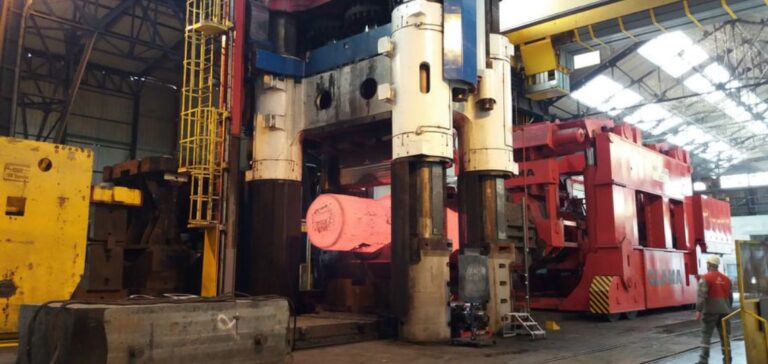The Minister of Energy Transition, Agnès Pannier-Runacher, announced on Friday the relocation in France of an essential stage of the manufacture of nuclear tanks by Framatome, a new mark of support to a sector that President Emmanuel Macron wants to revive.
A new Framatome workshop will be built in Le Creusot
The minister said that “a new Framatome industrial workshop will be built here in Le Creusot” (Saône-et-Loire), on the Framatome site, and “will allow the relocation of high-precision parts previously manufactured in Eastern Europe”. The new workshop will require 100 million euros of investment between now and 2026 and will be installed in the historic building at Le Creusot, where the French nuclear program was launched in the 1970s – quite a symbol.
A critical piece for the nuclear industry
In this “cradle of French metallurgy”, the workshop will make it possible to manufacture the stainless steel internals that guide the fuel rods inside a nuclear tank. The internals manufactured in the new workshop, creating about 100 jobs, will be used for the construction of future EPR2s, “at a rate of 1.5 per year”.
An issue of national sovereignty
“It’s a comeback” in France, says Framatome. “We can’t depend on others to make such a critical part,” the Energy Transition Ministry argues, without wanting to comment on the likely additional cost of manufacturing these parts in France compared to Eastern Europe. “It is a matter of national sovereignty,” said Ms. Pannier-Runacher, announcing that this relocation would be followed by others.
A “small stone” in the project to revive nuclear energy
This new workshop is a “small pebble” in the vast project launched by President Emmanuel Macron in the face of the energy and climate crises and which must enable France to achieve carbon neutrality by 2050. Ms. Pannier-Runacher dismissed criticism that this stimulus policy is being rushed through while the nuclear acceleration bill is still not approved by Parliament. It will be debated in the National Assembly from March 13, after having been easily voted by the Senate in January. “We are preparing,” the minister simply said.






















